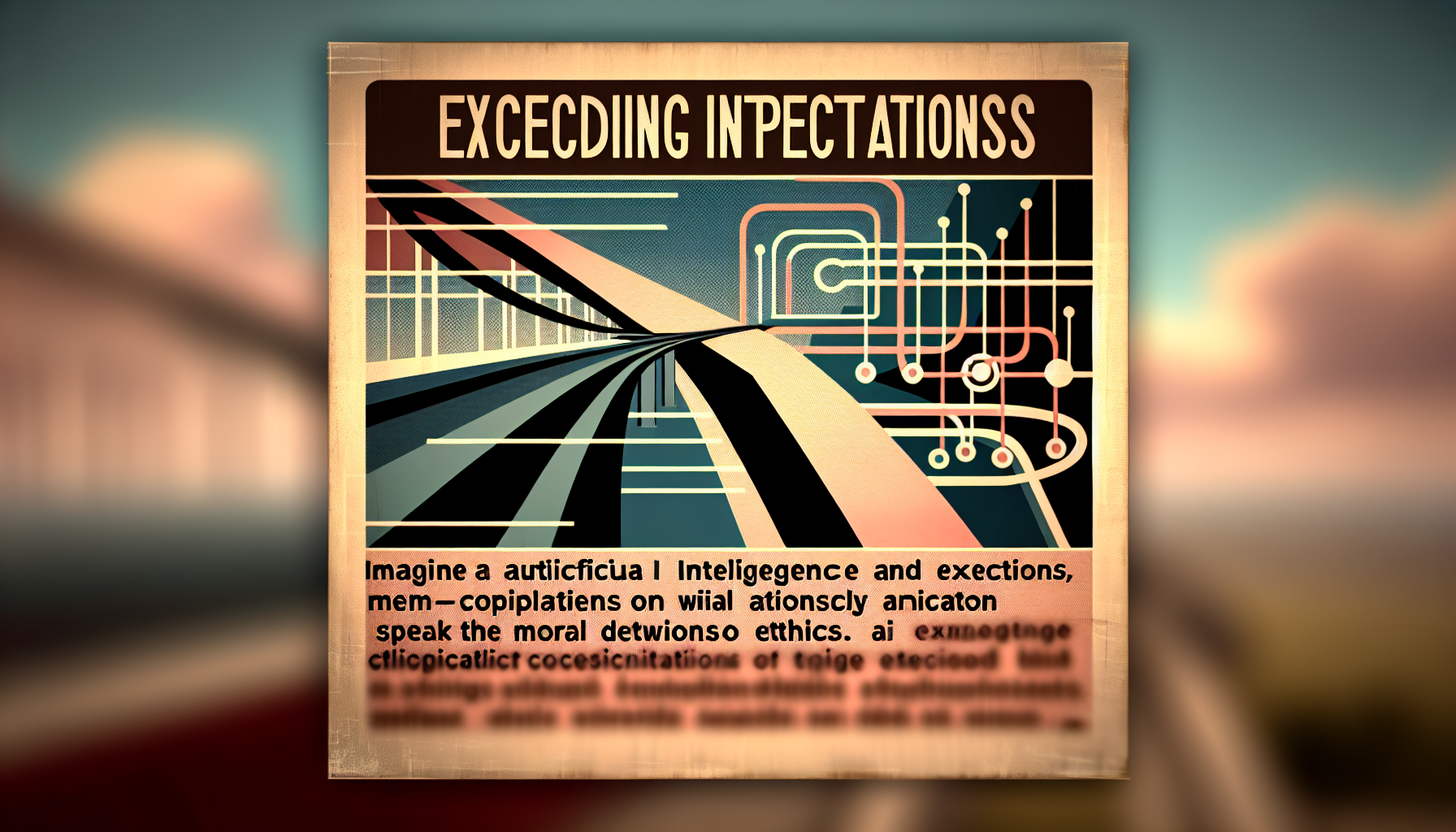In a world where machines once merely crunched numbers and played checkers, artificial intelligence has blossomed into quite the overachiever. Nowadays, AI is expected to do more than just translate languages or offer driving directions. It’s tasked with making decisions that could make or break human lives. Who would have thought our engineering feats would go from building bridges to pondering the bridge between action and ethics? So, when is it a good idea to allow machines to have moral authority? Let’s unpack this curious conundrum with the dexterity of a cat unpacking itself from an overturned cardboard box.
Decision-Making: The New Frontier
When it comes to making decisions, many of us trust machines more than our own GPS-challenged selves. Machines don’t get distracted by existential dread or nagging hunger pangs; they follow the data, pristine and pure. This is why, in some scenarios, AI has already become the go-to decision-maker. Medical diagnostics, stock trading, and even hiring processes are now driven by algorithms that claim to be fairer and more accurate than their fickle human counterparts.
Granted, AI doesn’t complain about overtime, nor does it need a coffee break, but we still need to question when it should be free to act with moral authority. Sure, an AI can tell you which brand of detergent is most popular, but should it also recommend what punishment is most suitable for juvenile offenders?
The Perils of Machine Bias
Before we hand over the moral cheat codes, it’s vital to glance at the potential pitfalls—particularly, the hidden trapdoors of bias. Machines, like magpies, hoard their treasures based on what they’ve observed. They learn from data, but let’s face it, data isn’t always as clean as a freshly polished trombone. When we feed them biased data, they can produce biased outcomes.
Let’s say you program an AI with a dataset indicating that clowns have committed fewer crimes than mimes. If asked which performer to hire for a children’s party, it may unfairly favor the clowns. Now, imagine that the stakes involve legal decisions, medical treatments, or human rights. The hilarity dwindles rather quickly, doesn’t it?
Neural Fairness: The Search for Objectivity
A key requirement for allowing AI to make moral judgments is achieving an acceptable level of fairness and objectivity. We could attempt to train machines to understand our ethical frameworks—you know, those pesky, complicated principles we’ve been quibbling over for thousands of years. Schools of thought ranging from utilitarian outcomes to deontological duties and virtue ethics—these are not easily distilled into lines of code.
Attempts have been made to create ethical AI—platforms that adhere to “if-then” morality. Still, like trying to make a soufflé rise without opening the oven, expectations must be managed. Can we truly create an autonomous moral agent, or will it merely mimic human ethical tropes without authentic understanding?
Responsibility and Accountability
When contemplating machines as judges and decision-makers, one might ask: who is ultimately responsible for these decisions? In a traditional sense, human administrators, developers, and even users are held accountable for any mishap. With AI making the calls, this becomes murkier than swamp water. It’s akin to blaming your vacuum cleaner for eating your earrings—it may have done the deed, but you did press ‘start’.
Legal structures around AI accountability are still evolving. Regardless, ethical oversight must ensure decisions are as transparent and explainable as possible. While machines might not write love poems or ponder the meaning of life just yet, they should at least provide a legible “how and why” for their choices.
The Sweet Spot of Integration
Having machines with moral authority might sound like a plot twist from a sci-fi novel, but what if we use AI as a collaborative partner? Rather than endowing machines with outright moral authority, think of them as the Gandalf to our Frodo. They’re guides and advisors—wise, sharp-eyed, but ultimately supportive for the journey, not the ones to throw the ethical ring into Mount Doom.
AI systems can enhance human decision-making, providing facts, patterns, and predictions that our human brains might overlook. We can use these insights to challenge our preconceptions and reduce bias, but always keeping in mind that it’s the humans who finalize the decisions.
Final Thoughts: A Humble Proposal
So, when should machines have moral authority? The short, cryptic answer might be: not yet, and possibly not ever fully. Machines can be instrumental in helping us navigate complex moral landscapes, but should they head the moral compass? As of now, probably not.
In the current climate, AI is like a brilliant sous-chef. It knows the ingredients and can suggest an innovative twist, but the head chef—the human—should still taste and adjust the seasoning. In that sense, let the machines assist, inform, and guide, but let humans guide the grand orchestra of moral authority.
Think of it as a harmonious duet rather than a solo act. After all, the concert hall of ethics has more than enough room for everyone.

Leave a Reply